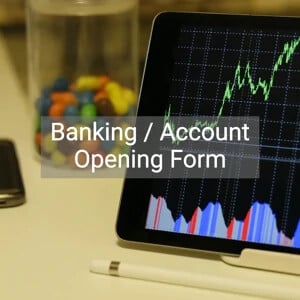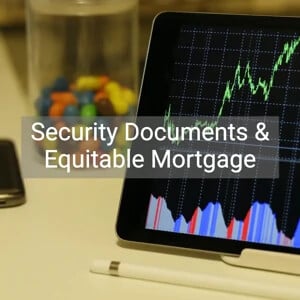Banking / Account Opening Form


Banks and other financial institutions are crucial to businesses and the modern economy. They provide a secure platform for us to manage our financial transactions. Almost all businesses and individuals would need at least one bank account with a bank, to conduct financial transactions. Unfortunately, it is getting increasingly difficult to do so given the stringent regulatory environment in relation to compliance, money laundering and terrorism financing.
The documents under this category consist of many commonly used general banking documents, including account opening form/application form, customer declarations on the ultimate beneficiary, risk disclosure, authorisation letter to the financial institution on the operation of the account, requests for bank verifications of account information, as well as board minutes for the opening of a bank account.
Below are the typical steps to open an account with a bank / financial institution:
First and foremost, you will need to consider the size, reputation and financial strength of the bank. Who are the shareholders of the bank? Is it owned or backed by the government? Is there a deposit guarantee/insurance scheme? If so, what is the amount being guaranteed? Is it conveniently located? How advanced is the technology? Do they have internet banking that is easy to use? Do you know someone in the bank that could make the process easier? If so, you can make an appointment with him/her.
There are several types of bank accounts to choose from, such as savings accounts, current accounts, time deposit accounts, and current accounts. Do you open one account or many different accounts? What types of banking services do you need? Does your bank also provide an investment account?
The account application form must be filled out correctly in all aspects. The necessary name, address, occupation, and other details must be filled in where needed. You may also be asked to sign on a signature card. If it is a joint bank account, it must be signed by all of the account holders. Some modern banks also take biometrics information of the account holders (e.g. facial recognition and fingerprints) in addition to signatures.
The account holder is required to provide documents and references to verify the information in the account opening form. These include identification documents, address proof, references, etc. (please see below).
The bank staff will verify the application and follow up with any questions if required - e.g. purpose of the account and source of fund. Further compliance approval may be required in relation to any unknown source of fund, opening of account by a high-risk person (e.g. politically sensitive person), or any other suspicious activities such as money laundering, bribery, or terrorist financing. The staff will then make an internal recommendation on the opening of the bank account.
The account holder will need to make a deposit of the minimum amount required by the bank into the account after it has been approved and opened. The bank will provide the account holder with a passbook, chequebook and deposit slip. If it is a time deposit, open a time deposit slip. For current accounts, chequebooks and payslips are issued. The bank may also go paperless. internet banking and will issue such statements and slips electronically.
Below are documents and information typically needed by a financial institution to open a personal bank account:
Below are documents and information typically needed by a financial institution to open a corporate bank account:
Where appropriate, the financial institution may also ask for the following information:






Not the right document?
Don’t worry, we have thousands of documents for you to choose from: